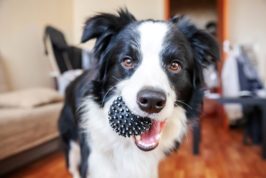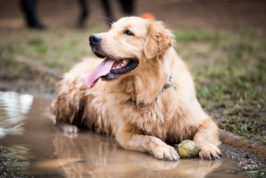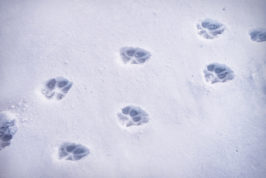Dogs licking faces – the good, the bad and the ugly
If your best friend has fur and a waggy tail, you probably enjoy spending special moments together having cuddles, playing ball and sharing treats. It’s easy for us to show our canine companions that we love them by petting them, taking them on their favourite walks and snuggling with them on the sofa. But what about when they want to show affection back?
When your dog licks your face, it can seem like a sweet way to let us know that they love us. However, dog saliva can harbour lots of bugs that can make us seriously unwell. So, what are the risks of letting your dog lick your face? And why?
What bacteria live in a dog’s mouth?
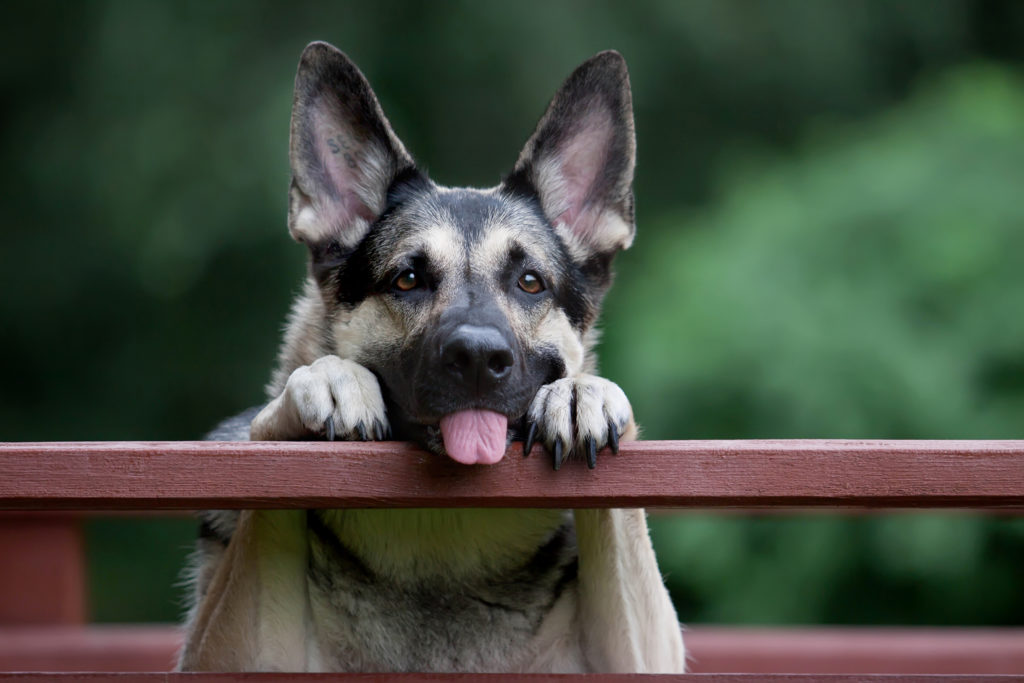
As humans, we are advised to brush our teeth twice a day or even after every meal. This is because brushing our teeth reduces the levels of bacteria in our mouths. Between brushing, bacteria levels build up again, especially when we eat and drink. So, even if you brush your dog’s teeth regularly, their mouth will still contain large amounts of bacteria.
Both dogs and humans have over 600 types of bacteria in their mouths.
Dogs’ lifestyles are less hygienic than ours, nibbling and licking their fur, paws and bottom to keep clean and comfortable. So, the bacteria that live in their mouths can be even more concerning than those found in human mouths.
Both dog and human mouths contain a selection of bacteria that cause plaque, leading to gum disease and even tooth decay. This group of bacteria is called Porphyromonas. There is also a type of bacteria called Capnocytophaga that can be found in the mouths of humans and dogs. They are just another component of the vast population of bacteria. However, dogs’ mouths also contain a selection of bacteria called Enterobacteria, commonly found in poo. These include E. coli and Enterobacter.
The specific bacteria within your dog’s mouth can also be affected by what they eat. Dogs who scavenge rotten food or wildlife carcasses and those fed a raw food diet may have other bacteria in their mouths, like Salmonella or Campylobacter.
Can dogs get sick from the bacteria in their mouths?
Although the Porphyromonas bacteria will cause dental disease in your dog’s mouth, most other bacteria will only cause illness if your dog is vulnerable. This could be if they have a weakened immune system due to medication or ongoing illness or if they have wounds or cuts in their mouth that allow the bacteria to enter.
If you feed raw food to your dog, there is a risk that they will pick up Salmonella or Campylobacter from the raw meat. These infections can cause diarrhoea and weight loss, although some dogs may not show any signs.
Can humans get sick from the bacteria in a dog’s mouth?
Thankfully, most bacteria found in a dog’s mouth are species-specific, meaning they can’t cause illness in other species. So, dog bacteria will affect dogs, and human bacteria will affect humans.
However, some bacteria, known as zoonotic bacteria, can cause disease in other species too. Two zoonotic bacteria, Campylobacter and Salmonella, can be found on raw meat. If your dog is fed a raw meat diet, there is the potential for these bacteria to remain in their mouth long after they’ve finished eating. If your dog then licks your face, the bacteria could transfer to you and make you unwell.
The Capnocytophaga bacteria from your dog’s mouth also has the potential to make you severely unwell. However, this is very rare and only occurs in those with a weakened immune system.
What are the risks – is it really that bad?
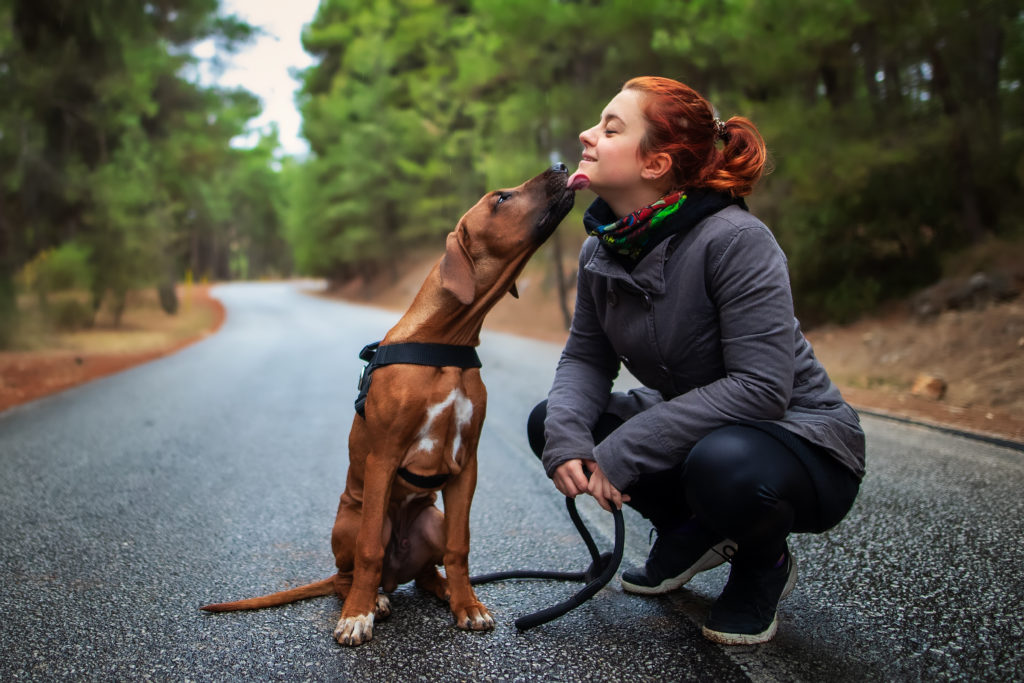
Capnocytophaga
The risk of contracting an infection from a Capnocytophaga bacterium is minimal because it is a so-called opportunistic pathogen. This means it will only affect susceptible people who are immunosuppressed or have a wound or injury, which provides the bacteria with an easy route into the bloodstream. This makes Capnocytophaga more likely to cause a problem if you are bitten by a dog, rather than them licking your face.
However, although the risk is small, the possible consequences are catastrophic. Because these bacteria are specific to your dog, your immune system will not recognise them and may take longer to kick in. This gives plenty of time for the bacteria to multiply, and sadly infection with Capnocytophaga can lead to deadly conditions like septicaemia and organ failure.
Campylobacter or Salmonella
Another risk when it comes to bacteria from your dog’s mouth involves Campylobacter or Salmonella. These zoonotic bacteria could give you severe vomiting and diarrhoea, which can have serious consequences like dehydration or even sepsis. The main risk factor for your dog having these bacteria in their mouth is being fed a raw diet since uncooked meat can carry the bacteria. Again, the chances of contracting these bacteria from your dog are low, but the potential risks are very serious.
Parasites
Aside from bacteria, your dog’s mouth could also carry parasites, including various worms and protozoa. As well as causing an upset stomach, some parasites can form cysts within your body tissues, and depending on their location, can cause symptoms including blindness, seizures, headaches, dizziness and vomiting.
My dog keeps licking my kids’ faces, is that okay?
It can be tricky to stop your children from allowing your dog to lick their face. After all, it’s a welcome sign of affection, and it’s difficult to explain the risk. However, young children’s immune systems are unlikely to be as developed as those of adults, which means the consequences could be more serious. Therefore, teaching your child not to allow their face to be licked by the dog and the importance of good hygiene after handling the dog will help keep them safe.
What can I do to reduce the risk?
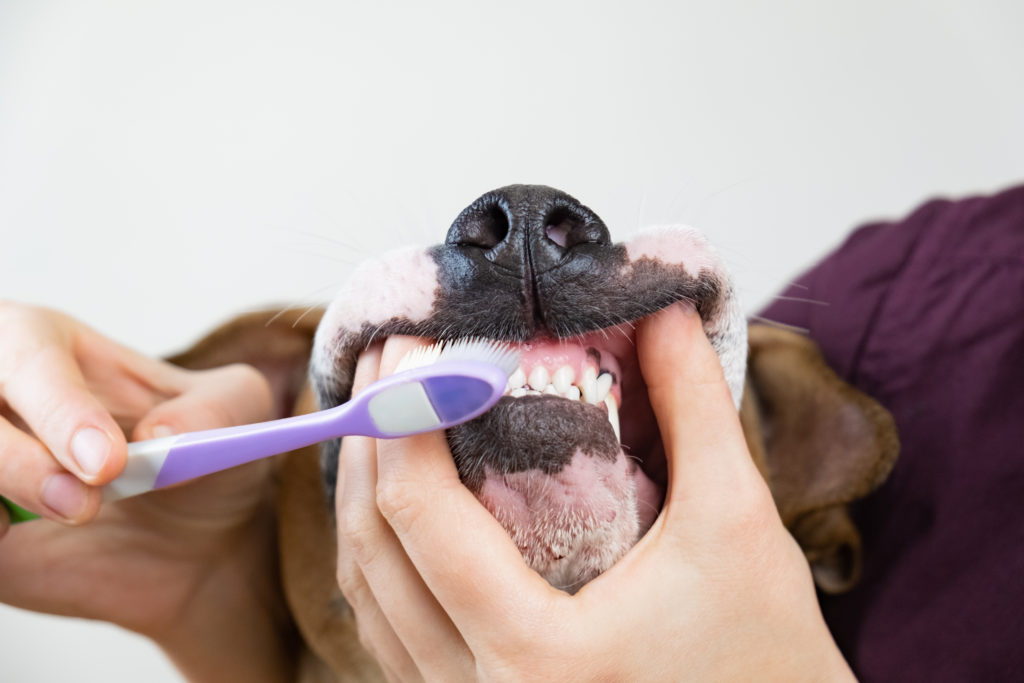
Dogs will inevitably try to lick your face, and at times it can be impossible to stop them. However, there are some measures you can take to keep the risk to you and your family as low as possible.
Parasite treatments
Firstly, ensuring your furry friend is up to date with parasite treatments will help to make sure they’re not carrying anything nasty that they could pass on to you.
Good oral hygiene
Each time you brush your dog’s teeth, you remove some of the bacteria within their mouth. However, there will always be bacteria in their mouths, no matter how thoroughly you brush, so the risk cannot be removed altogether. Nevertheless, ensuring your dog has the best possible oral hygiene will help to reduce the risk from them licking your face.
Consider what your dog has been doing
Before allowing your dog to lick your face, consider where they have been and what they might have recently had in their mouth. For instance, if your dog has an unpleasant habit of eating animal poo, you definitely don’t want them licking your face! Avoiding a raw food diet will make your dog’s mouth slightly safer so that if they do give you a sneaky kiss, there is far less risk of you becoming unwell.
Practice good general hygiene
Finally, good general hygiene after contact with your dog is always advisable. It’s unrealistic to expect pet parents to wash thoroughly after all contact with their precious pet. Still, it’s sensible to wash your hands or face when you can, especially if you know they’ve been somewhere particularly dirty or eaten something disgusting!
Summary
When it comes to our doggy family members, it’s normal to want to enjoy all of the love and friendship they bring to our lives. As long as you’re aware of the risks and the precautions you could take, you’ll be in the best position to keep yourself and your family safe from their canine kisses!

